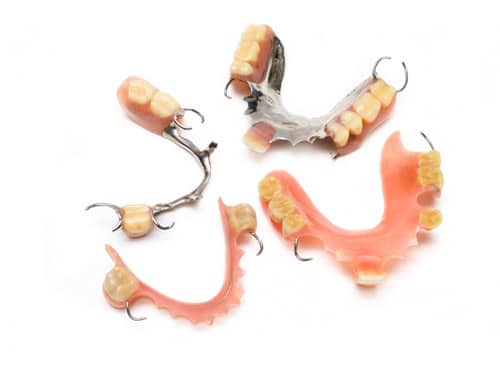There are a range of different tactics you can use to help avoid damaging your dentures. Denture care is incredibly important not only to minimise their wear and tear but also for your oral health overall and that of your gums and mouth.
Dentures that are taken care of properly can last for several years. However, if damaged at all, it is important to see your denture technician or dentist as soon as possible, as they will be able to fix or replace your dentures for you. Many denture clinics offer same day denture repairs, as sMiles Better do, which is a convenient way in which to get your dentures fixed and back where they belong.
Damaged dentures are not suitable and are often unsafe to use and so attention should be paid to whether or not they are in good condition or need repairing.
The Importance of Denture Care
When your dentures are damaged or worn, they may stop fitting correctly in your mouth. Poorly fitted and worn dentures can cause a lot of discomfort, and can even lead to sores in the mouth, infections or troubles with speech and eating. It is therefore important for your health to try and minimise the risk of your dentures becoming damaged. If your dentures do become damaged, it’s also vital that you don’t wear them, and get them fixed or replaced as soon as possible.
See a dentist if you start to experience any of the following issues:
- Your dentures start to click when you talk
- Your dentures become uncomfortable to wear
- There is visible damage/wear to your dentures
- You start to experience signs of gum disease, for example your gums start bleeding
It is also important to note that your gums and jawbone will shrink overtime. This means that whilst your dentures may last for several years when taken care of, they may not be suitable for you to wear as time goes by. You should always speak with your dentist if you start to feel like your dentures aren’t fitting the way they should. This is the case even when you’ve kept them in good condition.
How to Take Care of Your Dentures
From handling to cleaning routines, there’s loads of different things you can do to help keep your dentures in working condition. Below is a list with some of the top ways you can help to care for your dentures:
Taking Care When You’re Not Wearing Them – Dentures are built to be in the mouth. Even when you’re not wearing your dentures, they will still need to be in similar, moist conditions. If dentures are not kept in such conditions, they could dry out or even lose their shape, making them unwearable.
When you aren’t wearing your dentures, it is best to keep them soaked, either in water or a special denture cleansing solution. However, this will only apply provided that your dentures do not have metal attachments, as such attachments could end up becoming tarnished if soaked in a solution. The dentist you got your dentures from should advise you on how to best keep your dentures when not wearing them.
Cleaning Your Dentures Properly
In order to keep your dentures in good condition, as with teeth, it’s important to clean them regularly with the appropriate cleaning products. Hand soap can be used for cleaning dentures, as can certain dishwashing liquids. Whilst it’s easy to think that toothpastes might be an effective solution, many of these can be too abrasive, and therefore it’s advised not to use these.
Additionally, bleach is also best to be avoided when cleaning your dentures. Using bleach could end up whitening the pink area of the dentures that represents the gums, which can make them look less natural when worn. You should clean your dentures daily, as you would with natural teeth. Brushing your dentures as you clean them is also advisable, as it helps to clear away the build-up of any food or plaque, preventing stains and other issues that can come with poor oral hygiene.
Handling dentures carefully: Finally, when handling your dentures, it is important to always do this with great care. When cleaning them, it can help to do this over a towel or a sink full of water. This minimises the risk of the dentures getting damaged if you accidentally drop them.

